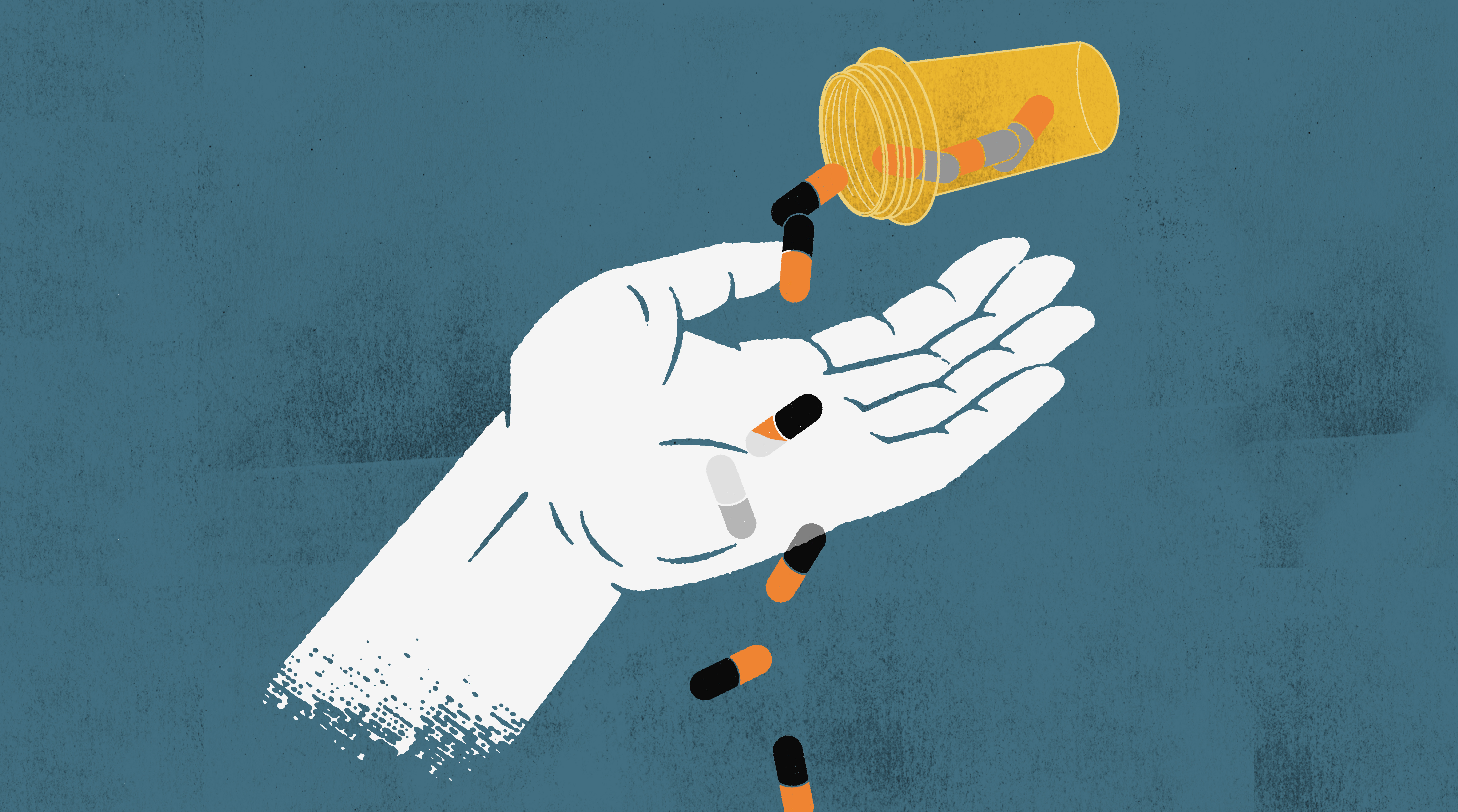How the invisible hand of the market literally saves lives
Competition and innovation are essential to a robust biotech industry


A free daily email with the biggest news stories of the day – and the best features from TheWeek.com
You are now subscribed
Your newsletter sign-up was successful
Remember when some hedge fund guy bought a small drug firm and then jacked up the price of its life-saving HIV drug by 5000 percent, to $750 a pill?
Wasn't that proof that market forces too often go haywire, and that, in important domains like health, they have to be severely curtailed? Hillary Clinton seemed to agree, tweeting that she would stop such abuses with a "plan."
But now another company, Imprimis Pharmaceuticals, has announced that it will put forward a rival drug — at just $1 a pill.
The Week
Escape your echo chamber. Get the facts behind the news, plus analysis from multiple perspectives.

Sign up for The Week's Free Newsletters
From our morning news briefing to a weekly Good News Newsletter, get the best of The Week delivered directly to your inbox.
From our morning news briefing to a weekly Good News Newsletter, get the best of The Week delivered directly to your inbox.
It goes to show that when you let market forces play themselves out, you usually get a good outcome. What Economics 101 predicts would happen actually happened: A company with a monopolistic position tried to jack up the price of a product, only to be undercut by an enterprising firm.
We already know what market forces can achieve in the abstract. Poverty worldwide is at its lowest level in history, which would be unthinkable without globalization, trade, and capitalism. And this latest incident shows how badly we need market forces in the health industry specifically.
Even those who acknowledge that market forces are useful or necessary view some domains — like education, art, and health — as somehow sacred. Many feel that we shouldn't let market forces work there. While it's an important philosophical insight that we shouldn't trust every sphere to the market, still, on the whole, we fear market forces too much.
Take the economic system that governs Hollywood. The same market that produces all this horrible comic-book dreck also produces great independent films. When independent films were undervalued, Miramax saw an opportunity and pounced, eventually becoming a major film studio and bringing such films into the mainstream.
A free daily email with the biggest news stories of the day – and the best features from TheWeek.com
The reason why education is so horrendous, the reason why a classroom still looks the same way today as it did in the late 19th century, is because we've rejected innovation in education, with incalculably awful consequences for human flourishing. We invented the best education technique — the Montessori method — over a century ago and still haven't rolled it out to market. When sous-vide cooking was invented, it was rolled out to market thanks to the profit motive, and now Chipotle uses it on a mass scale to delicious effect. If only we cared as much about our children's education as we do about delicious burritos!
And thus it is in health. When the FDA charges several billions of dollars to get a new drug to market, but it costs less than your cable bill to put a website online, you bet you're going to get too many photo-sharing apps and not enough cures for cancer. Half of all health spending is wasted, and somehow nobody's alarmed about that. As the business executive David Goldhill pointed out in the most important single article you can read on health care policy, hospital-borne diseases kill hundreds of thousands of people per year and we view it as just a fact of life, even though if McDonald's was as careless about hygiene it would be crushed by its competition overnight.
As Milton Friedman pointed out in the 1970s, the kind of integrated care that the Mayo Clinic is globally famous for would be illegal to start today. And don't even get me started on medical licensure. Truly, we have a lot to learn.
To get back to the issue of drugs, the problem is not too many market forces — it's that there aren't enough. Investment in the sector has dried up because startups have dried up; this is because the cost of getting started is too high, thanks to the FDA. The last innovative biotech to become an industry giant — Genentech — got its start in the 1970s and was eventually bought by another giant. It's as if Google had been bought by Microsoft because it had to spend $2 billion on trials for its search engine before the FCC would allow it to go online. The internet would have five websites.
It's a disaster, and it's a disaster whose consequences are counted in millions of avoidable deaths. (But, sure, the problem is with ObamaCare opponents.) That's the main problem. And I wish more of our presidential candidates understood that.
Pascal-Emmanuel Gobry is a writer and fellow at the Ethics and Public Policy Center. His writing has appeared at Forbes, The Atlantic, First Things, Commentary Magazine, The Daily Beast, The Federalist, Quartz, and other places. He lives in Paris with his beloved wife and daughter.
-
 The ‘ravenous’ demand for Cornish minerals
The ‘ravenous’ demand for Cornish mineralsUnder the Radar Growing need for critical minerals to power tech has intensified ‘appetite’ for lithium, which could be a ‘huge boon’ for local economy
-
 Why are election experts taking Trump’s midterm threats seriously?
Why are election experts taking Trump’s midterm threats seriously?IN THE SPOTLIGHT As the president muses about polling place deployments and a centralized electoral system aimed at one-party control, lawmakers are taking this administration at its word
-
 ‘Restaurateurs have become millionaires’
‘Restaurateurs have become millionaires’Instant Opinion Opinion, comment and editorials of the day
